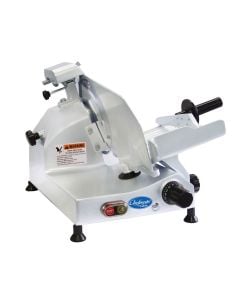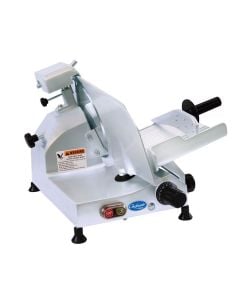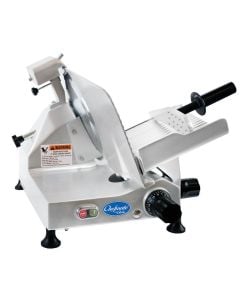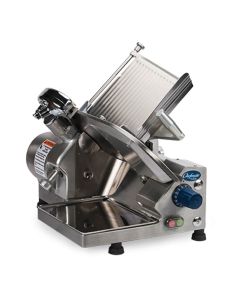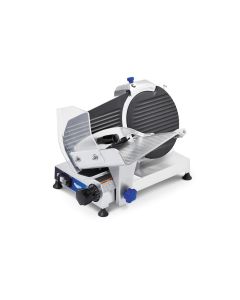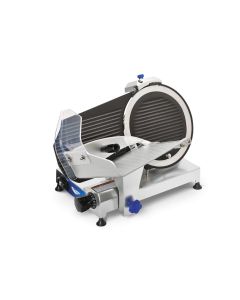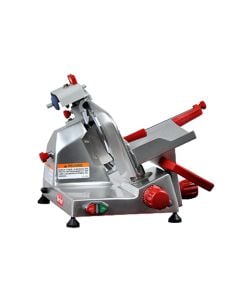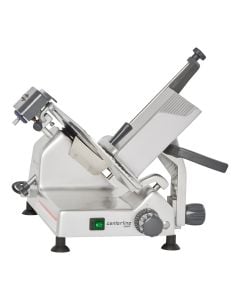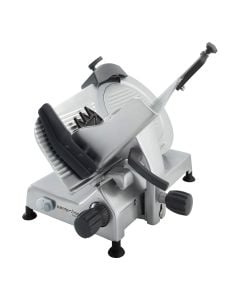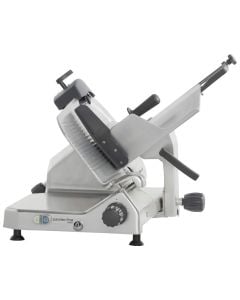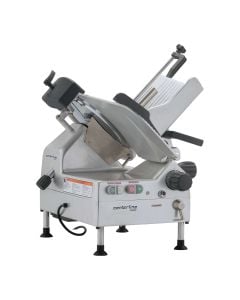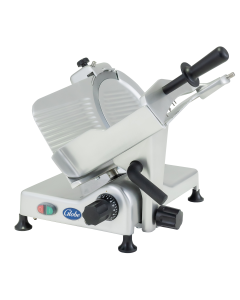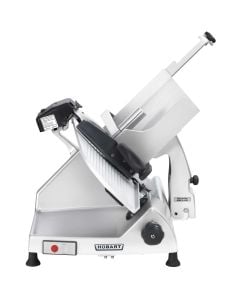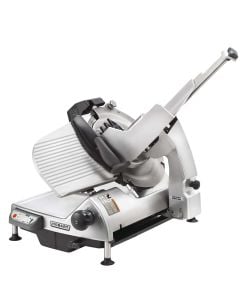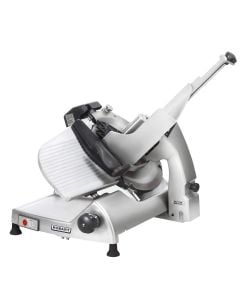Commercial Meat & Cheese Slicers
Choose from a wide selection of commercial meat slicers designed for precise, efficient slicing. Available in various blade sizes, including nine, ten, and twelve inches, our slicers are perfect for businesses with diverse meat slicing needs. Whether you run a deli, restaurant, or butcher shop, you’ll find the ideal slicer to meet your requirements.
A Look at Commercial Meat Slicers
If you own a deli, a meat shop, a butcher's shop, or a supermarket and you are looking to sell sliced meat and cheese, you will surely benefit from a good-quality meat slicer.
A meat slicer, also known as a a slicing machine or simply a slicer, is a piece of equipment used to slice meats and cheeses.
There are different types of commercial slicers depending on what you require for your establishment. A heavy-duty commercial meat slicer will find a home in establishments where there is a high demand for cuts of meat day in and day out. Heavy use is often defined as slicing meat all day. These heavy duty meat slicer units consume more electricity compared to lighter-duty units but will do an efficient and effective job.
Light-duty commercial slicer units, on the other hand, consume less electricity than their heavy-duty counterparts but are not built for heavy use. Light use is defined as having a slicer work for less than two hours a day. Medium use is defined as having a slicer work for two to four hours a day.
Meat slicers can also double as generic commercial food slicers that are used to slice not just meat but breads and cheeses as well.
One important thing to remember, however, is that it's important to thoroughly clean the blade of your commercial food slicer in between slicing different types of food items. This is because, for instance, when shifting from slicing meat to cheese in one unit, you are risking contaminating either food. This can be potentially harmful because there are people who suffer from food allergies, especially those allergic to milk, and contaminating meat with lactose from the milk can be dangerous. In return, potential bacteria found in raw meats such as salmonella and E. coli can contaminate raw cheeses.

